
Looking at different organic farming on my travels
I have been lucky to have travelled to 2 quite different places in the last 4 months or so and uncovered two different organic farming methods.
Dharamshala, India
Firstly on my own to India in May, to make my annual or bi-annual trip for my Himalayan Iyengar yoga (HIYoga) fix. This usually takes place in Goa on the West coast of India during Christmas and New Year.
This year though I decided to take myself up the foothills of the Himalayas to Dharamshala. The home of both HIYoga and, of course, the Dalai Lama.
What a great opportunity to get better acquainted with my yoga and also learn about Tibet and the Buddhist living God who resides there in exile.
Saltzkammergut, Austria
My second trip was with my partner Hannah to Austria. To do what we love doing on holiday, mountains and lakes. We travelled to the Saltzkammergut region and found out about the lake district of Austria first hand.
We hiked up mountains, cycled by rivers and swam in the lakes. I even brought my swimming wet-suit because we were not sure how warm it would be… thank goodness for that!
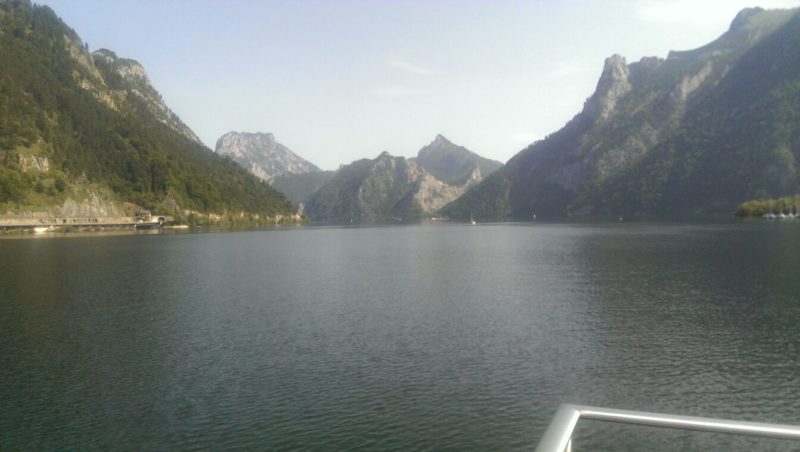
Both of these trips were more different than you can imagine, but there was one aspect that they both highlighted, something we have been writing about recently;
The Nutrition Gap—and how long it’s been around for! Read more about it.
I will talk about this, but first, the journey that exposed this…
Permaculture in India
I ended up going to Dharamshala to do 2 weeks of standard “continuing student” yoga. The way HIYoga runs its classes is by introducing each student to their teachings in a week long (5 day) course.
The student can then chose either to take specialist courses, for example, for health issues or meditation. Or simply to continuing with the teachings on 5 day courses that can run consecutively or you can come back at any time.
As a “continuing student” with 5 x 5 day courses behind me, I was going back to “continue” some more practice.
Silent Retreat
However, it wasn’t my first choice of yoga course to attend. I really wanted to go on the 10 day course at the HIYoga Shanti Ashram. Located in the lower foothills of the same hills where you can find Dharamshala.
This is also called “the Silent Retreat”. You are committing to 10 days of silence, left with only your thoughts. Whilst practising yoga and meditating during the day.
Whilst I had applied for this, my application was sent with a request that I join the course a day late. I had two friends getting married on the Saturday evening before. No matter how I tried, it took two days to get to Dharamshala.
So after much consideration in India, I was told, sorry but we cannot allow you to disrupt the class by arriving the following day. So, I had to settle for second best even if second best was fantastic.
Shanti Ashram
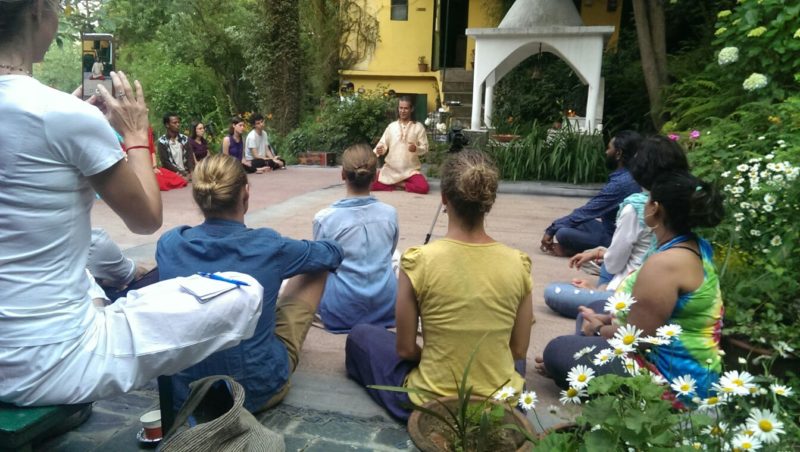
It was during the last day of my visit that I discovered what had really been going on at the Shanti Ashram.
This was during a celebration to mark the 15th anniversary of the BSK Iyenga Hall. The Hall we had been practising our yoga in for the last 2 weeks.
The celebration itself was mesmerising, for the offerings being made to the Gods and it was followed by a speech from the HIYoga founder who had led the classes in the second week, Sharat Aurora.
He explained fully about the way in which the Hall has come about and how the school had developed. But my attention was well and truly grabbed when he started to recount how they had set up the Shanti Ashram and why?
Attached to the Shanti Ashram was a farm that he described as organic but not organic. It is run on a never ending system of “permaculture”. What’s this?
“Permaculture” is a word that has been derived from “permanent agriculture”. Sharat explained the ethos, in that the soil is kept fertile and the crops rotated to ensure that the land is not over worked. No artificial pesticides are used and the practices involved promoted the evolution of organic farming over long periods. He talked about ensuring food of the highest quality was produced for the guests at the Ashram.
Also for the teachers who have their meals prepared exclusively using the produce from the organic farm.
-
They wanted to rid themselves of the toxins produced in the current food chain.
-
To produce nutritious food that hasn’t been degraded.
-
Exclude the processing that food companies use.
-
Reduce the shelf life that many foodstuffs are subjected to.
Heard this somewhere before!
Permaculture Society
If you look up the Permaculture Society in the UK they will tell you:
Permaculture is a design process. It helps us to design intelligent systems which meet human needs whilst enhancing biodiversity, reducing our impact on the planet, and creating a fairer world for us all.
They have many members in India and whilst I haven’t checked it would seem that the Shanti Ashram is following the teachings that they have distributed on this subject.
HIYoga has gone one step further and now runs a Yoga and Permaculture course so you can learn about how to grow food properly with organic farming methods and at same time catch up on your yoga practice. You can find it here.

Austria
Finding Farming in Austria
My second outing was in Austria. I wasn’t expecting that I would run into a completely different organic farming method but that’s what happened. Entirely by chance.
I had done my usual method for holidays, booking up the accommodation for 4 days and then winging it. We were only going away for 10 days so 4 days meant a good chunk of the trip. I felt pretty relaxed about the rest. With Booking.com and AirBnB apps on my phone what could go wrong! Nothing it actually worked like a dream.
Salzburg
The first 2 nights were booked with Suzanna on AirBnB who had a nice looking apartment 15 minutes on the bus into the centre of town. We had booked a classical concert on Friday night since this is Mozart’s home town. August was in the throes of the Salzburg festival too!
Hallstatt and Hallstattersee
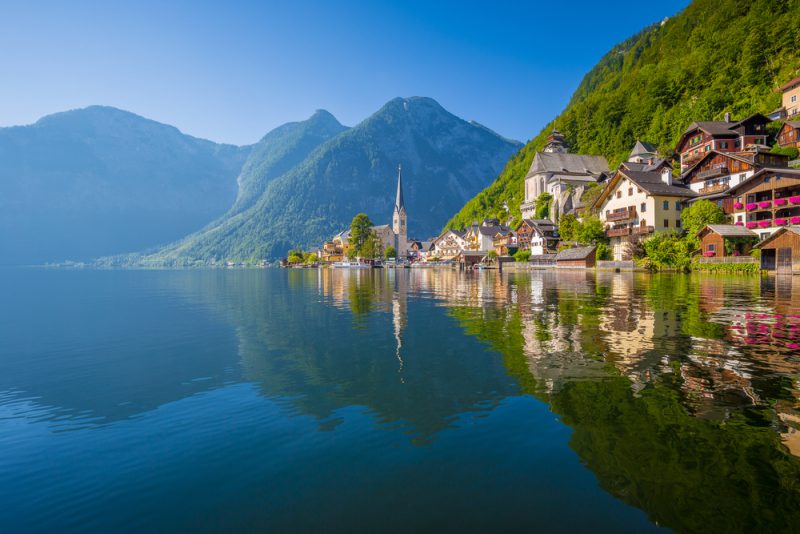
This is supposed to be the most picturesque place in Austria or the most pictured. I am not sure which!
We had booked a further 2 nights only to get rained upon constantly. Managed to get in a couple of swims in the lake though (translated as “See” so not confusing at all!) thanks to the wet-suit because it was freezing!
Bad Ischl
We cut our loses booking the next 6 nights. Accommodation in August was becoming harder to find at a decent cost. We booked a cute studio apartment in Bad Ischl courtesy of AirBnB for rest of stay.
This location was great since it had an organic supermarket literally one minute down the road. It also gave us quick access by car to all the lakes in the district which we visited day by day.
It also had some history since Franz Joseph kicked off WW1 here by letter. There was a SPA too where we learned that Austrians have a far more healthy view of nudity, in saunas in particular, than the Brits
So where is the organic farming in all this? Well slightly indirectly via Suzanna in whose apartment we stayed in Salzburg. Her parents run a farm outside Salzburg using the Demeter standards.
Demeter

What are Demeter standards, I asked Suzanna?
Well, Suzanna explained, it was started by a man called Steiner, a famous man. It is a method of organic farming, better than organic that looks after the soil and creates the best quality food. Wow, more organic farming than organic!
This sounds great. How do they do this? Well all kinds of ways but they enhance the manure by burying it in the ground for months on end, sometimes in cow horns.
Interesting… and they prepare certain sprays and waters to help the plants grow better by meditating over them whilst being prepared. Wow and wow again! Even better. A real connection between my yoga trip to India and my Austrian holiday.
Very interesting, we looked up Demeter on our iPads and got a feel for what it was all about, see their web-site.
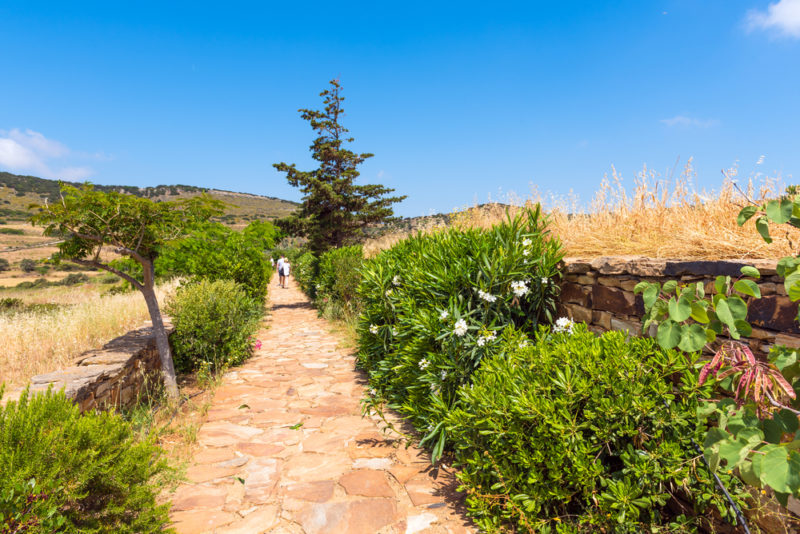
In 1924, all those years ago, Joseph Steiner a German gave 8 philosophical lectures about farming. It was becoming apparent to farmers in Germany and elsewhere that the soil was being degraded year on year.
The quality of the crops reduced, both in terms of quantity and nutrition
Nearly 100 years ago they worked out that modern farming techniques needed to change. Change to ensure that the soil was able to sustain the crops that it nurtured.
The idea was to make the farm a single organism that created all the nourishment that it needed to nurture the existing crops through various specific preparations.
At the same time nurture the soil by rotating the crops, using bio diversity and treatments so it was fertile enough for the next generation.
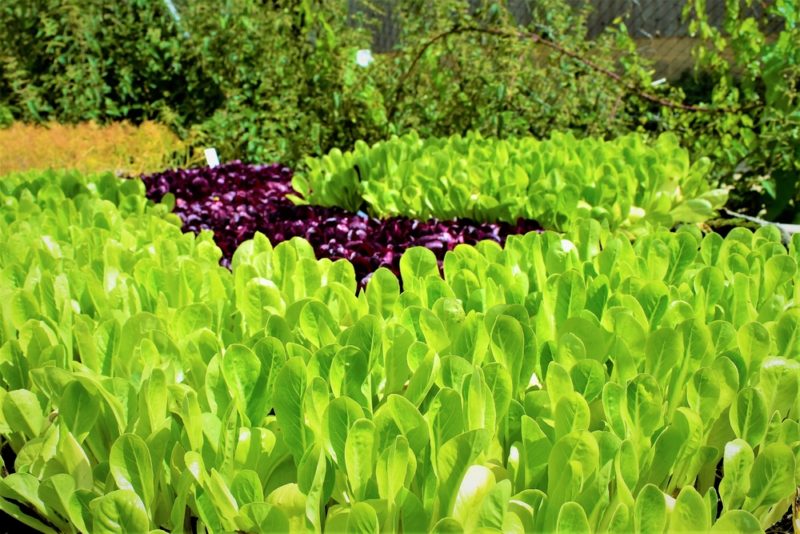
Demeter was in fact the first organic method of farming on which many of the organic practices we use today are based.
It not only provides a methodology for farming but also food preparation, packaging and distribution to ensure that when the food hits your table it is the best that it can be.
A great bottle of wine
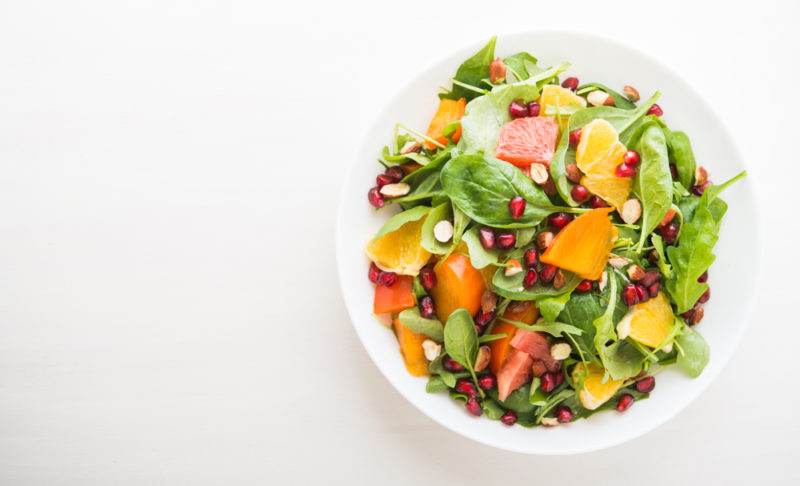
Amazing, but is this set of practices completely useless to the modern world? Just some pie in the sky.
You would think that no-one in their right mind is going to spend all that time and money making specific old world preparations for some extra nutrition…to fill or lessen the nutrition gap.
Well, imagine our surprise when we walked into the local organic supermarket in Bad Icshl and found a whole host of products with the Demeter label on them. Not least of which was a fabulous bottle of red wine that went down a treat with the goat’s cheese!
The realisation
What I have found out is that all over the world farmers are seeking to grow the best crops or food. Whilst current farming methods may produce huge quantities of food. It was recognised nearly a 100 years ago that food is generally of a reduced quality if you get it from conventional farming.
How much different?
We are going to look into this question for you.
We are going to examine how you can fill the Nutrition Gap, enhance your nutrition and take a look at how big it is depending on your lifestyle and eating habits.
Perhaps you don’t think you have one?
Let’s see what our digging will find out over the coming weeks!

